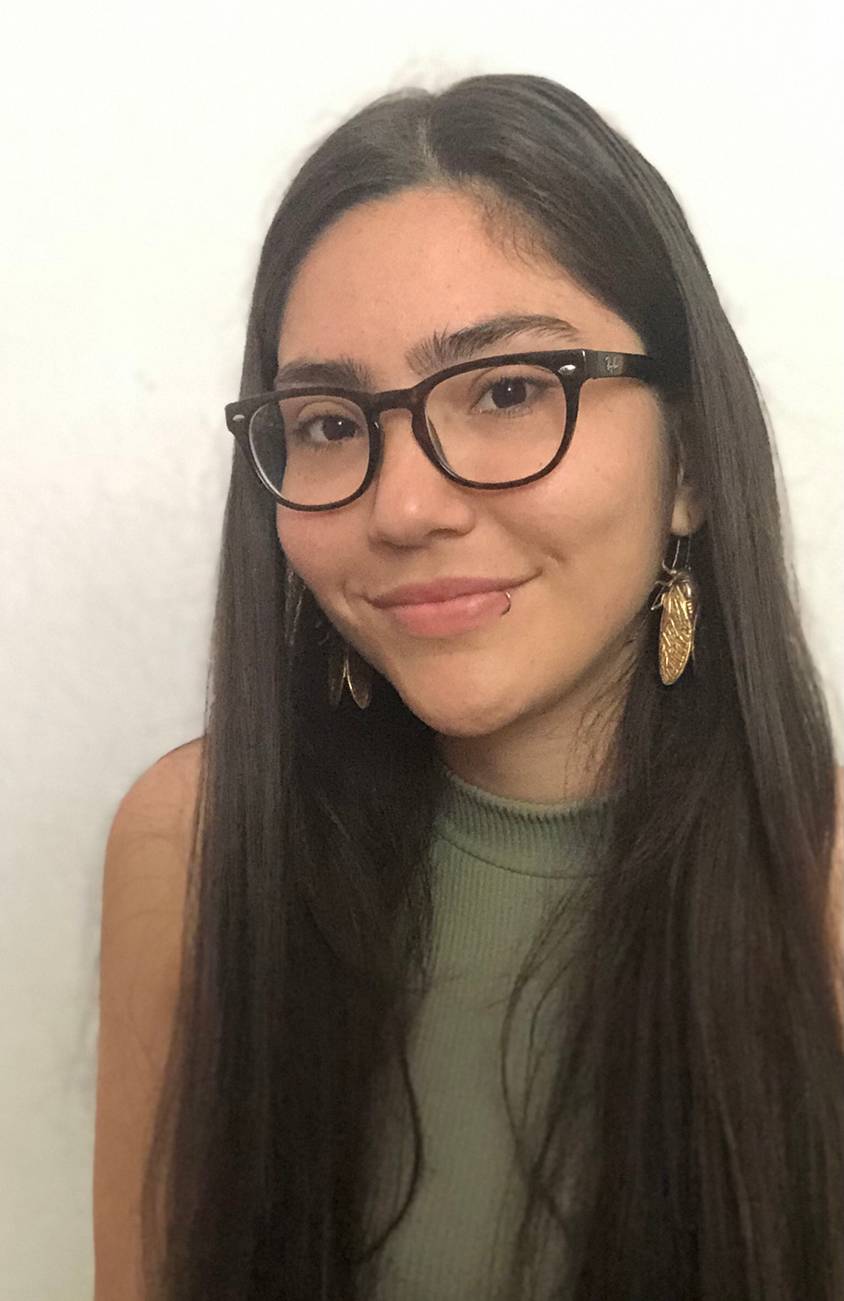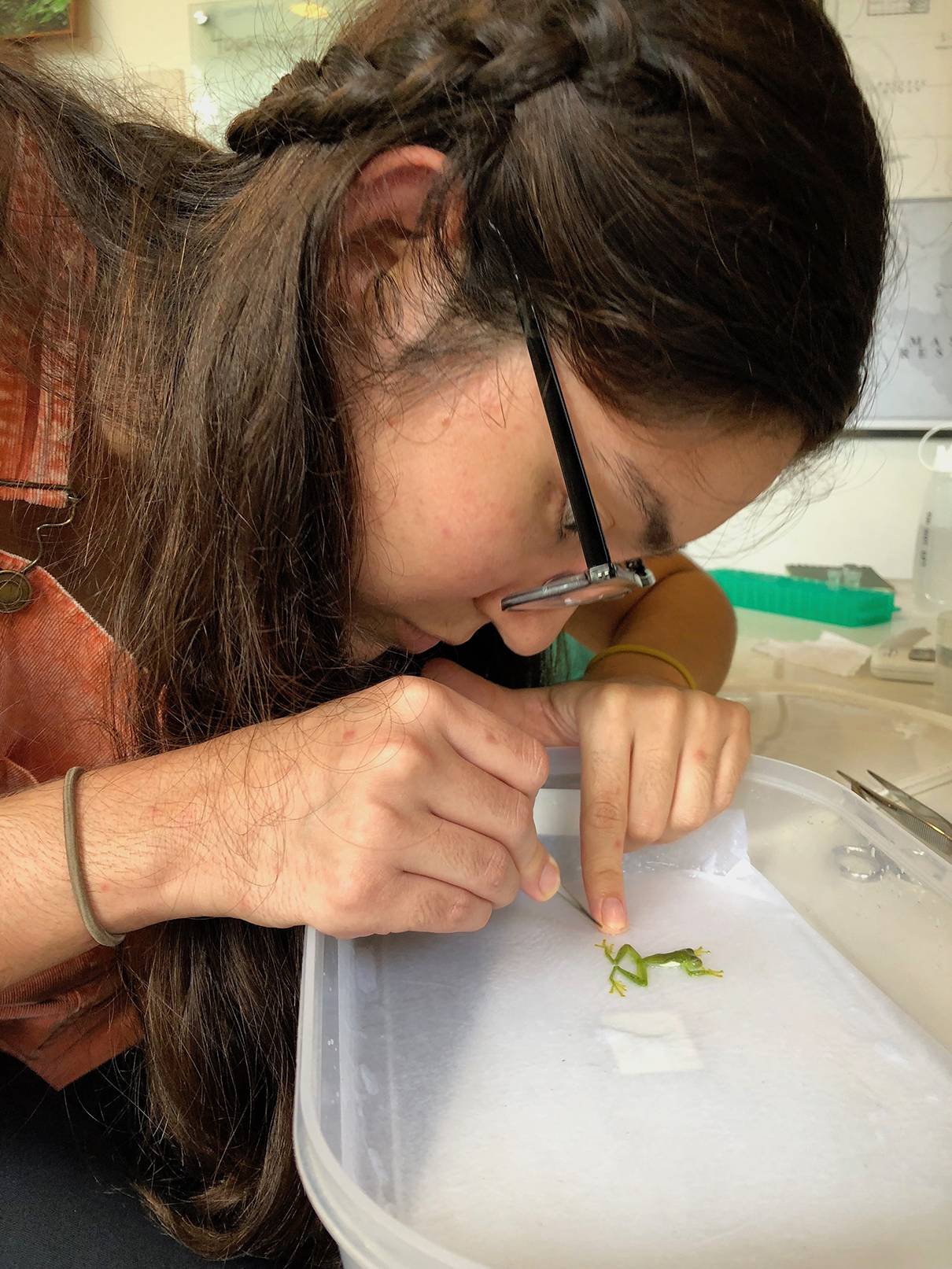Julie Cooper | May 26, 2021

Maria del Mar Moretta-Urdiales, a Texas State University doctoral student from Ecuador in the Department of Biology's Aquatic Resources and Integrative Biology program, has been awarded two national fellowships: the American Association of University Women's (AAUW) International Fellowship and the P.E.O. International Peace Scholarship.
Moretta-Urdiales is only the third graduate student in Texas State's history to receive the AAUW International Fellowship — the first from the College of Science and Engineering — and is only the second student to receive both the AAUW International Fellowship and the P.E.O. International Peace Scholarship award.
“Being a woman in the scientific community in Ecuador is a constant challenge. Field biology is not a common job for us, and it gets even harder when our research involves amphibians and reptiles, as culturally this is considered a man’s field. Consequently, there is a critical lack of opportunities to gain that experience for women. The lack of opportunities almost made me quit science every year since 2017; yet, I persisted, but sadly, I had to leave Ecuador to get experience as a scientist and later be considered one.” she said.
Moretta-Urdiales is also a recipient of a Special Wilson Fellowship through the Verena and Kenneth J. Wilson Latin American Research Program that supports collaborative research, teaching, and outreach exchange activities between Latin America and Texas State. The AAUW application was supported by her advisor, Dr. David Rodriguez.
She conducts ecological fieldwork in various biodiversity hotspots throughout Ecuador, including the Amazon, the Andes, and especially the coast, where only 2% of the original native forest still remains. “Within those forests, I study reptile and amphibian communities—the latter of which is the most endangered vertebrate group on the planet. My current work combines ecology and genetics to investigate emerging infectious diseases, particularly in understudied canopy systems.

“One of the most exciting aspects of my research is that I will be using innovative portable sequencing technologies to generate DNA sequences of diseases and their hosts (e.g., frogs) while still in the field, which circumvents logistical and political challenges associated with the exportation of genetic samples. My overall goal is to train and empower future generations of Ecuadorian biologists in the application of novel genetic technologies, with a broader focus on the conservation of fragile ecosystems,” Moretta-Urdiales said.
Established in 1917, the AAUW International Fellowship ($20,000 for doctoral recipients) provides support for women pursuing full-time graduate or postdoctoral study in the United States who are not U.S. citizens or permanent residents. Recipients are selected for extraordinary academic achievement, a demonstrated commitment to women and girls, and a strong motivation to return to their home countries to become leaders in their fields.
“I know that the lack of opportunities also forces young Ecuadorian researchers drop out of science careers and join the shrimp industry. Shrimp production is one of the most important industries in Ecuador, and almost all their employees are young biologists that wanted to be researchers but didn’t have the opportunity. I am trying to change that. As part of my research, I will train young women that aspire to become biologists in the skills they need to start independent projects.”
After receiving the doctoral degree, Moretta-Urdiales plans to return to Ecuador. “I will keep training the new cohort of women biologists and improve the quality and quantity of research and learning opportunities through my growing collaborative network. I will also expand science education in local and rural communities where I work by training local women as para-biologists.”
Share this article
For more information, contact University Communications:Jayme Blaschke, 512-245-2555 Sandy Pantlik, 512-245-2922 |
